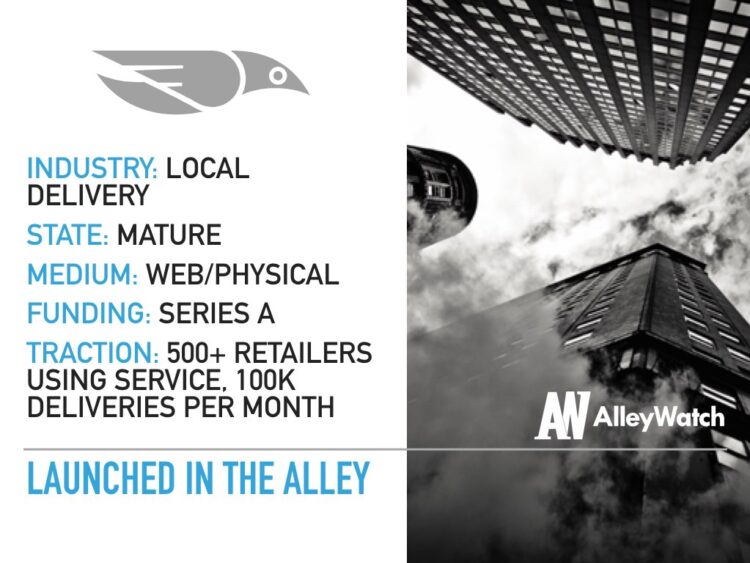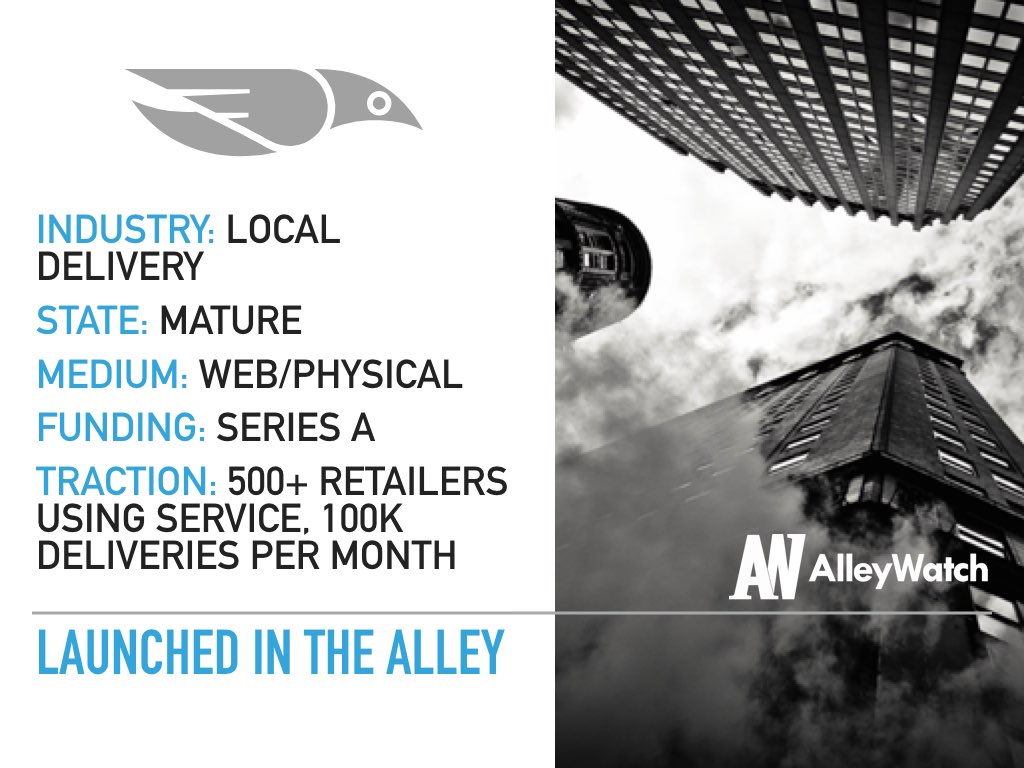When it comes to deliveries, not all miles in the distance a product travels to get to the consumer are created equal. Specifically the last mile of any delivery suffers from a majority complications ranging from traffic, timeliness, availability, and logistically getting to the front door; especially in a city like New York. With Homer Logistics, deliveries from local retailers are taken care of in swift and efficient fashion with no additional stress involved. The company has recently raised a Series A round of $8.5M including investments from prominent NYC investors including Laconia Capital and Lerer Hippeau Ventures.
AlleyWatch chatted with founder and CEO Adam Price about Homer and how it plans to deliver success.
Tell us about the product or service.
Homer is a logistics company that supports retailers with local deliveries. We work with restaurants, grocery stores, liquor stores, and similar local businesses to provide an economical solution for delivery fulfillment. Homer works directly with businesses that have high volumes of local deliveries, but do not want to manage their own delivery workforce.
How is it different?
There are two primary differences between Homer and other local delivery platforms. First, Homer is only involved in the delivery process. Homer is not a marketplace or marketing platform, and the customer does not order through Homer. Instead, Homer only focuses on the delivery process, which is limited to the picking up and dropping off of the package(s). Focusing solely on delivery fulfillment allows Homer to be more economical than marketplace models in the delivery process. Second, Homer is an employee-first logistics operation. Where most marketplaces have approached local delivery by using independent contractors, Homer employs all of our couriers offering them benefits ranging from medical insurance to stock options.
What market are you attacking and how big is it?
Homer is targeting the rapidly growing local-delivery market, or final-mile delivery process as some refer to it. An observable shift is taking place with digital ordering and pay-per-convenience in the consumer space, and Homer is developing a logistics solution to allow deliveries in this ecosystem to be cost effective and scalable.
What is the business model?
Homer charges a fee for each delivery we run for the business. Homer also has a SaaS product that allows businesses to manage their digital, out-of-store orders. By aggregating deliveries of local businesses, Homer executes the delivery much more efficiently than the business managing their own delivery process. This efficiency of execution allows Homer to make money on each delivery, while covering the cost of running our operation.
What inspired the business?
I had moved from California to NYC in 2013. At that time, NYC was the only developed local-delivery city in the United States. I noticed the massive amount of local deliveries being managed by these businesses, and the fact that running deliveries was not the core skill set of the business owner. Realizing that the local-delivery ecosystem was going to grow with the growth of the digital consumer, we felt there was a void for a logistics solution and service to provide to these business owners.
How does last mile delivery differ in urban areas versus suburban/rural settings?
Last mile delivery in urban areas has complexities associated with buildings and drop off points. This includes things like security desks, freight access, varying entrances depending on time of day, etc.. The modes of transportation (bikes vs. cars) are also important depending on the service time the customer/business have established. Trying to pickup and drop off a delivery in under an hour limits some of the modes of transport in a place as dense as NYC. Suburban areas tend to have lower route densities, but the drop off complexity is significantly less, so the actual economics of the two balance out. Local delivery growth is not an urban phenomenon, it is a fundamental shift in consumer behavior that affects all geographies.
What are the milestones that you plan to achieve within six months?
We are focused on the operations and software systems to create the most efficient and economic way to move goods locally. Over the next six months, we are making some major upgrades to everything from our order assignment optimization algorithms to our policies for employees.
What is the one piece of startup advice that you never got?
If large amounts of people are involved in execution of your business, no matter how much you think you have a technology company, you really have an operations business. Strong, experienced people need to be in that type of business from Day 1 to avoid a lot of headaches.
If you could be put in touch with anyone in the New York community who would it be and why?
Dan Doctoroff, head of Alphabet’s Sidewalk Labs. Sidewalk Labs is looking at entire city ecosystems of the future, and moving goods inside these ecosystems will be one of the highest priority challenges. Homer is the only company focused on a logistics-as-a-service platform that does this with scale, efficiency, and economics in mind.
Why did you launch in New York?
New York is THE local delivery economy in the United States. It presents the most challenges, most verticals, and largest addressable market. If you are trying to solve local delivery execution, you have to be based in NYC. Otherwise, you aren’t engineering your system to be a robust enough solution.
What’s your favorite restaurant in the city?
Chop’t. Efficient and tasty salad, delivered.




